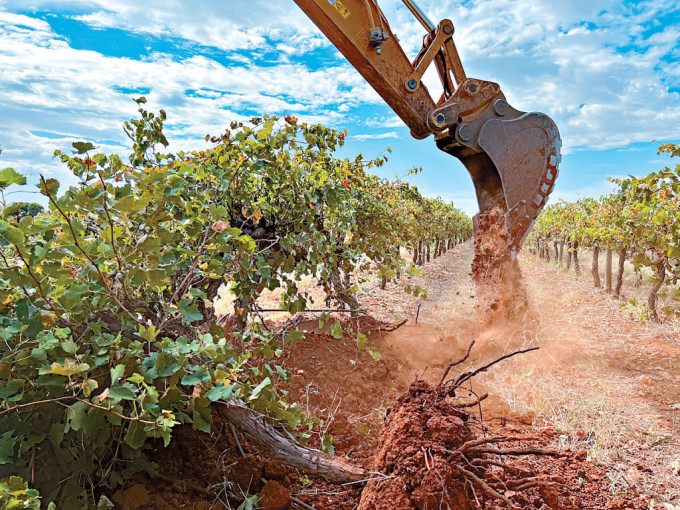Facing the thorny problem of oversupply of wine, Australian farmers are destroying millions of grapevines to control the output of wine. Surplus production has led to a sharp drop in the prices of grapes and wine, and threatens the livelihoods of growers and winemakers.
Australia is the world's fifth-largest wine exporter. The decline in global wine consumption has hit Australia particularly hard, as demand for cheap Australian red wine has declined the fastest. It is generally believed that China's earlier imposition of punitive tariffs on Australian wine has exacerbated the problem of oversupply of Australian wine. Data shows that as of the middle of last year, the inventory of Australian wine has exceeded 2 billion liters, equivalent to the output of two years, and some wines are deteriorating.
Balance the market and increase the price
Cas, the head of the local farmers' organization Riverina Winegrape Growers, said that in order to balance the market and increase the price, as many as a quarter of the grapevines in areas such as Griffith, Australia, must be uprooted. Reuters calculated that if this is done, more than 20 million grapevines on 12,000 hectares of land will be destroyed. About two-thirds of Australia's wine grapes are grown in irrigated inland areas such as Griffith. With the main wine producers in the local area refocusing on better-selling and more expensive wines, the surrounding areas of Griffith are in trouble, and unpicked grapes wither on the vines. "It feels like an era is coming to an end," said Calabria, a third-generation vineyard owner and winemaker at Calabria Wines.
The price of Australian grapes is currently at a multi-year low. Data from the Australian Wine Management Bureau shows that in areas such as Griffith, the average price of grapes entering these areas has dropped to A$304 per tonne, the lowest level in decades, more than half lower than A$659 in 2020. To deal with the problem of oversupply of wine, the industry in the largest wine-producing region in Australia, the Riverbank region of South Australia, held a meeting to discuss countermeasures, during which some response plans were proposed, including temporarily suspending the planting of grapes and destroying millions of grapevines.
